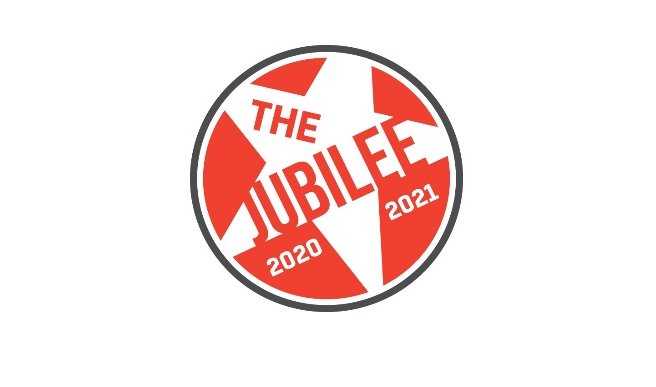Kirk Lynn, a co-producing artistic director of Rude Mechs in Austin, has a big idea of how to put under-produced playwrights at the forefront of the national theatre scene. He traces its origin back to a story he saw in the New York Times about a study on the persistent gender disparity in theatre programming. “When I look back in my mind, that’s the first time I thought, Oh God, we have a big problem,” Lynn recalls.
As a member of the national advisory committee for the online platform HowlRound, Lynn reached out to his colleagues with a “wild idea.” A committee was formed and began meeting last May. Then, last week, they unveiled what they call “The Jubilee”: an initiative inviting theatres across the nation to pledge to produce only plays written by women, people of color, LGBTQA individuals, and writers with disabilities for a whole season in 2020–21.
The Jubilee committee is comprised of theatre leaders, artists, and other inspired individuals, and is open to anyone interested in joining its monthly conference calls, just as the call to action is open to any and every theatre. How many theatre does Lynn hope will join? “If it is my fantasy, I think every theatre—children’s theatre, Shakespeare companies, I don’t care!” he responds. The parameters are loose, and voluntary participation is as simple as filling out a Google form online. After a theatre signs on, the Jubilee committee has no plans to vet or oversee the theatre’s execution of the season.
“Right now, the role of the Jubilee committee is really to help amplify the fact that that institution has made the pledge,” says Jamie Gahlon, senior creative producer of HowlRound and Jubilee committee member. The 39 theatres who have signed on so far “are joining this huge national block party that we are having, more or less,” says Gahlon. “I think the responsibility for following through on the pledge and figuring out specifically what it means to that theatre or that community really falls on the person who has signed on. I don’t think anyone on this committee wants to be policing any of that, we don’t feel like that is our role.”

The announcement of the Jubilee was met last week with eager excitement, as well as skepticism and anger. Lynn says he was surprised by the latter reaction, adding that the committee didn’t anticipate the “grumpy” people who have chimed in online. The main complaint centers on the idea that the Jubilee’s inclusive spirit is actually exclusionary of straight white males; others have questioned whether gay male playwrights are really so underrepresented in the American theatre.
Still, the pledge is spurring conversation about who is and who is not getting produced season after season. And committee members say that the intention of the Jubilee is to bring forth talents who are routinely left out of the limelight.
“I do think it’s worth noting that the people who personally told me they don’t like it for different reasons are all white men, which I don’t think is a mistake,” says Lynn. “I totally get it; I am a white man myself. I want my plays produced,” he says. “I think it is a mindset in some ways, but when someone produces Lisa D’Amour’s play, it doesn’t mean that they are not producing mine.”
Of course, by the logic of the Jubilee, Lynn’s work wouldn’t be getting produced for a season, at least. But Lynn thinks that playwrights who are continually produced—white males still represent the vast majority of what gets produced on U.S. stages—and who may be warming the bench for a season in 2020 will learn from the Jubilee. With a new crop of artists and stories, Lynn says, there will be room for perspectives to be broadened, his included.
The committee has five years to iron out any kinks, and committee members say they’re happy to revise the language of the pledge to reflect the committee’s intention. “I look at the initial publication as a sort of inciting incident, but it is not the end-all, be-all,” says Gahlon. “Everyone on the committee is super-flexible and is open to making changes as we see fit.” The committee’s next goal is to continue the conversation of how to best invite everyone to America’s “block party.” The group plans to create how-to packets and cull a list of possible playwrights to aid theatres in creating their Jubilee seasons.
So what would be the ideal outcome of the Jubilee year?
“My radical hoop dream would be to have the American theatre be part of a national dialogue with people outside theatre,” says Gahlon. “To have American theatre, for a moment, enter into national consciousness in a way that perhaps it used to.”
Even more, Lynn hopes the Jubilee celebration will span further than the U.S. borders. “I can imagine people in Sweden or Paris opening their newspapers and being like, ‘America is doing what? That’s insane! How brilliant!’” says Lynn.
Lynn also says he hopes that the Jubilee might bridge the gap between organizations and artists.
“Much of the privilege of my life is that when I have a crazy idea, I feel like I can now e-mail or call a whole slew of people and say, ‘Are you interested in this idea?’ A great outcome would be if individual artists felt more connected in the end.”


